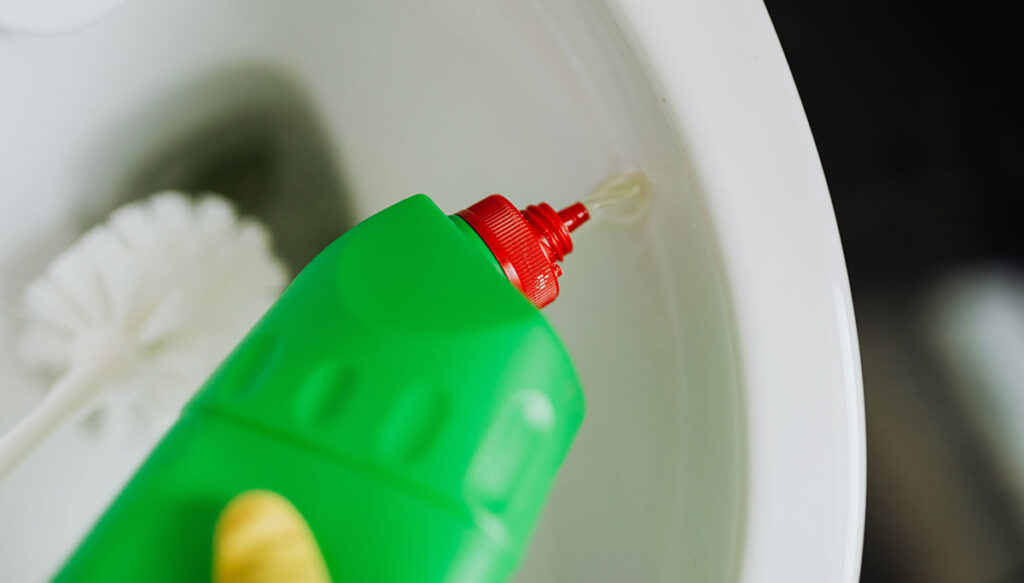Drain and septic tank maintenance is one of the least ‘glamorous’ aspects of keeping a home or property functional.
So it’s understandable that many people believe the claims of supposedly powerful and effective chemical cleaning products.
But while they may seemingly save time and effort in fixing septic tank problems, they can spell bad news for your drainage system.
Why use chemical drain cleaners?
Certain acidic cleaning products are used to try and remove common blockages like hair and are usually less harsh than other chemicals.
But to clear a problem like a fatberg, a more corrosive (and usually higher PH) product is frequently opted for.
Chemical cleaners are typically heavier than standing water, allowing gravity to ensure the product moves through, to tackle the problem.
And by simply pouring the contents of a bottle down the drain, it’s easy to try to forget the negative side of such actions.
System and environmental harm
Some cleaning products contain dangerous substances such as sodium hydroxide or sulphuric acid.
And while these chemicals can clear clogged drains, they can also cause damage to pipework and septic tanks.
Long-term use that results in corroded, leaking or burst pipes can prove costly and inconvenient to repair or replace.
Additionally, what goes down your plughole or toilet progresses through the sewage system before ultimately entering our natural waterways.
And even after water treatment, some toxins can contaminate rivers, lakes and seas, causing damage including:
- Harming aquatic life
- Disrupting the balance of ecosystems
- Polluting soil
This poses a significant risk to the long-term health of our water resources, plus the plants and animals that depend on them.
Of course, this isn’t a direct septic tank maintenance issue – but these threats to nature can also impact your system or sewage treatment plant.
Some chemicals can actually decrease the levels of natural bacteria in your tank that break down and digest waste materials.
And of course, a resulting blocked septic tank is a problem that will require professional attention to fix.
What can I do instead of using chemical cleaners?
Sometimes, simple white vinegar, baking soda and a little salt can be effervescently effective at shifting blockages.
And while repeated chemical reactions generating heat or corrosion can damage your pipes, recently boiled water is fine for pouring down the drain.
But if you want to save yourself the stress of DIY remedies versus shop bought chemicals, the best type of drain maintenance is preventative.
Drain maintenance support
Remember to only allow water, human waste and flushable toilet paper into your drain system and septic tank.
And if you’re thinking about using harsh chemical cleaning products, consider less harmful alternatives, or professional support.
To discuss your drain servicing and maintenance requirements, please get in touch today.
